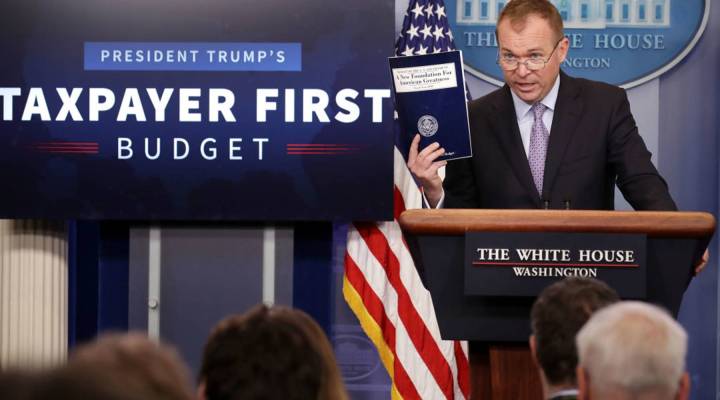
Do tax cuts automatically lead to economic growth?

How long does it take for a tax cut to jolt the economy?
“That’s a deceptively simple question,” said Joseph Thorndike, who directs the Tax History Project at Tax Analysts. Because before you can ask how long a tax cut takes to jolt the economy, you have to ask: Does it jolt the economy?
“It’s remarkably murky,” Thorndike said.
Whether or not a tax cut stimulates the economy depends on how a tax cut is paid for. Or really, whether it is paid for at all.
“Debt-financed tax cuts just won’t raise the long-term size of the economy,” said Bill Gale, co-director of the Tax Policy Center. That’s because if you’re paying for tax cuts by not paying for them, you have to fill the hole somehow. “If the government loses revenue, it’s going to borrow money,” Gale said.
More borrowing drives up interest rates, making it more expensive for businesses to invest. So, Gale said, “you don’t get a growth impact.”
The Trump administration says its tax cuts are not debt financed, though it hasn’t explained in any detail how they would be paid for. Analysts on both the left and the right say the plan could add trillions to the deficit. Even assuming the tax cuts are somehow paid for, how long until they take effect?
“It depends on whose taxes are being cut and in what way,” Gale said.
| The powerful interests fighting tax simplification |
| The history of income tax’s standard deduction is more interesting than you think |
| The taxpayers most likely to get audited |
Some tax cuts can work quickly. For example, during the recession, the payroll tax was cut. That put money directly into people’s pockets with every paycheck. The money was spent, the economy got a quick jolt.
The Trump tax cuts are mostly not that kind of tax cut. One of the biggest features of the Trump tax proposal involves cutting corporate taxes from 35 percent to 15 percent.
“An adjustment that large is probably going to take 10 to 15 years to occur,” said Kyle Pomerleau, who directs federal projects at the Tax Foundation.
That’s because the reduction is aimed at influencing long-term business decisions, such as building factories or investing in new equipment. Those take time.
But what if investors and companies don’t want to invest in more machines and factories? Aidan Garrib, a macro strategist with Pavilion Global Markets in Montreal, said that in the past, corporate tax cuts have been used to benefit shareholders.
“To pay dividends and issue share buybacks,” Garrib said.
That doesn’t mean that cutting corporate taxes never works, it just means the reductions need to be carefully targeted to be sure they promote investment.
So back to the main question here: How long does it take for a tax cut to jolt the economy? Well, anywhere from six months to 15 years, if it’s going to jolt the economy at all.
There’s a lot happening in the world. Through it all, Marketplace is here for you.
You rely on Marketplace to break down the world’s events and tell you how it affects you in a fact-based, approachable way. We rely on your financial support to keep making that possible.
Your donation today powers the independent journalism that you rely on. For just $5/month, you can help sustain Marketplace so we can keep reporting on the things that matter to you.


















